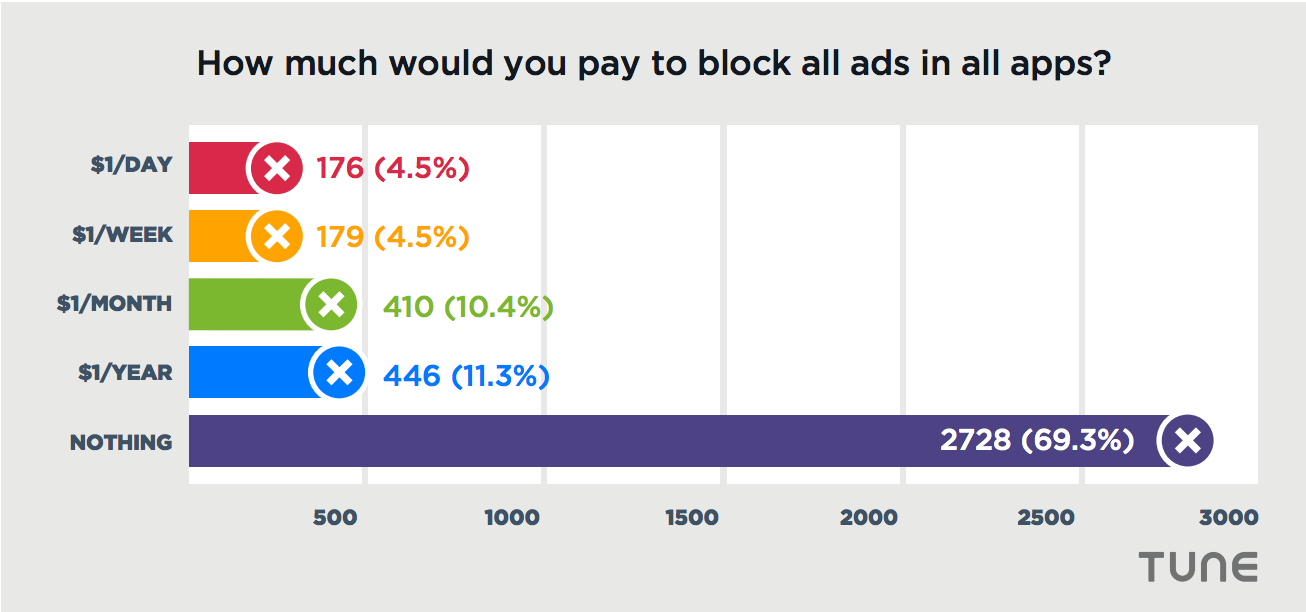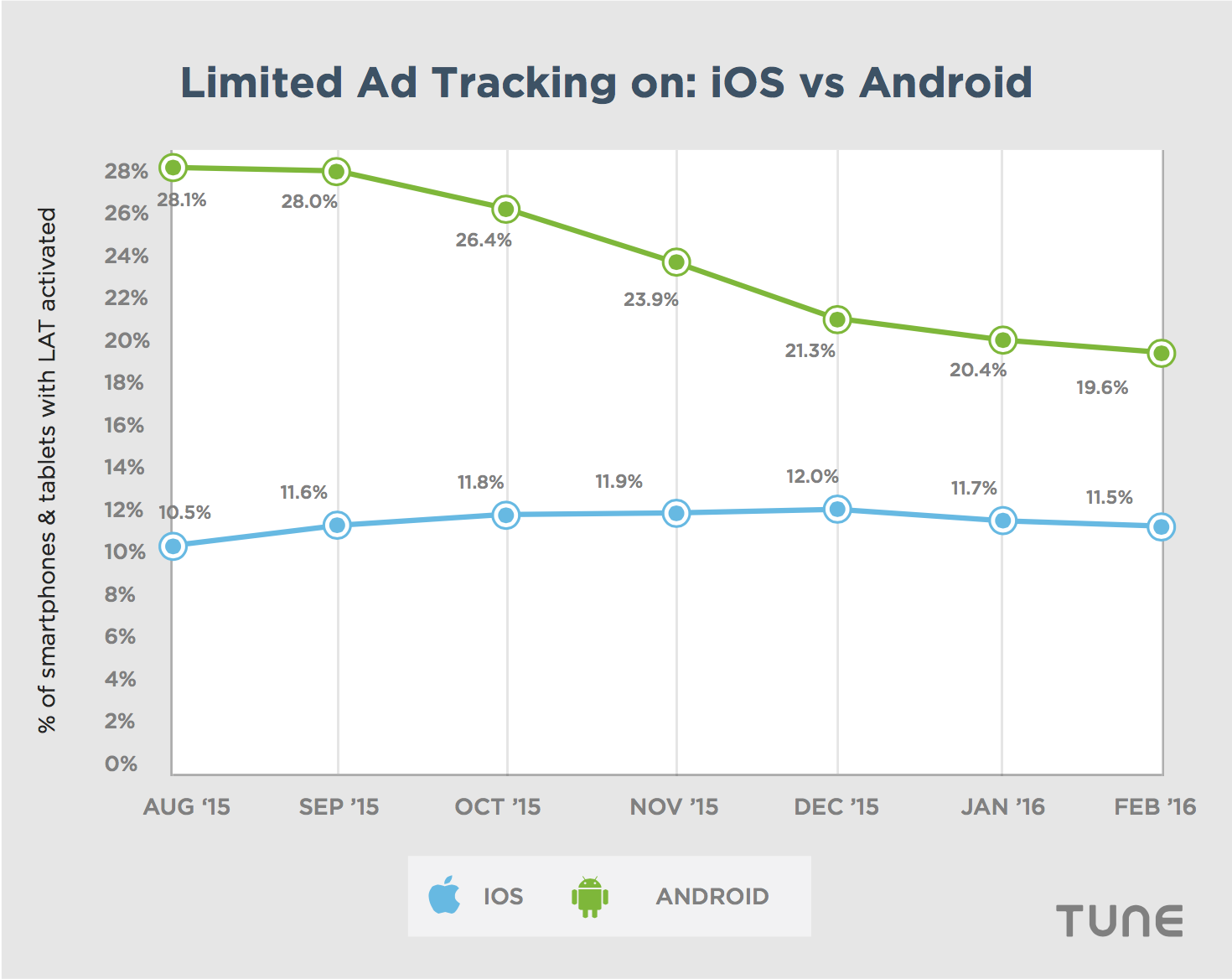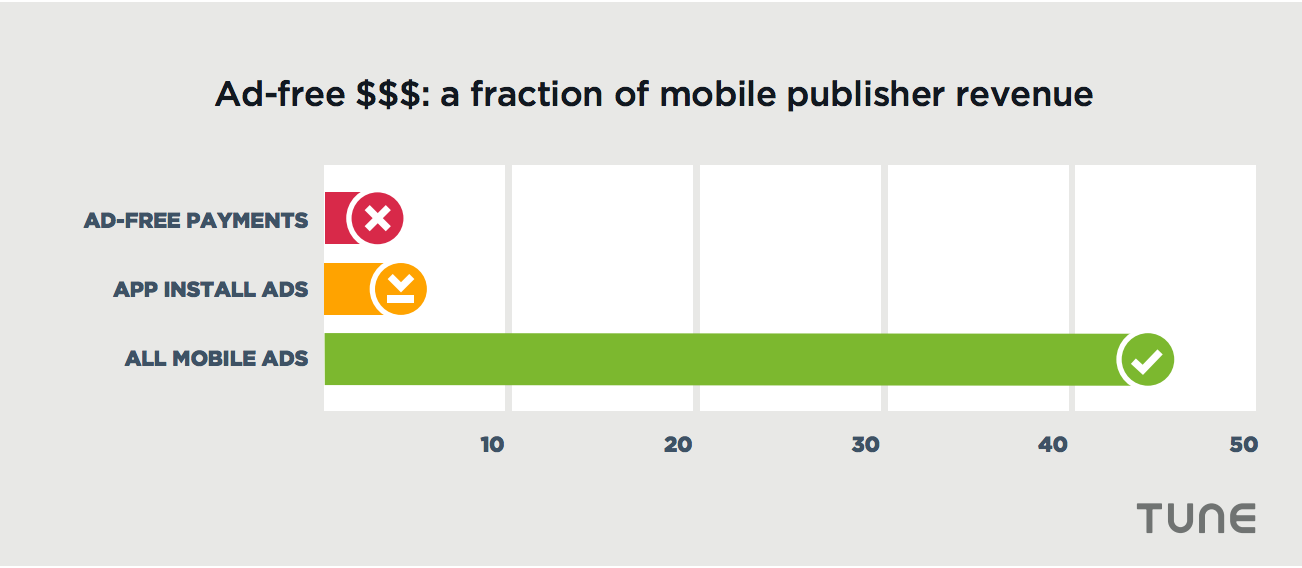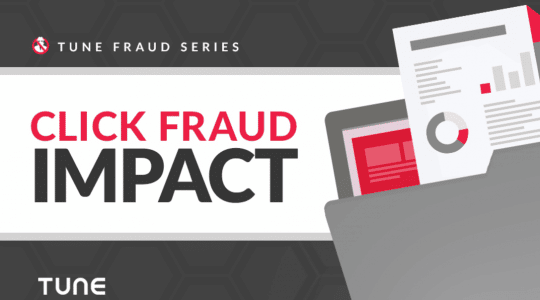
In case you missed it, Facebook just announced new features for users to manage their ad experience… and new technology that will render desktop ad blockers “useless,” as the NY Times puts it.
I will admit that I’m biased. I’ve been a performance marketer or the CEO of a company that helps marketers measure performance for more than a decade. At TUNE, we have always said we help make the Internet free. In fact, the best part about performance marketing is that the publisher does not get paid unless the advertisement actually works. That means a consumer actually chooses to download the app, register for the service, or make a purchase. As a result, this whole ad blocking craze has not impacted our business at all.
While we’ve seen mobile ad blocking app installs skyrocket, we also see that people immensely value a free, ad-supported ecosystem.

A consumer who is likely to click on an ad is also unlikely to download and use an ad blocker. So millions of impressions are being blocked, but those impressions were probably wasted anyway on consumers that hate advertising and will do anything they can to avoid it, much less click or tap on it.
Interestingly, our data at TUNE shows that people are using Apple and Google’s limit ad tracking settings less and less, indicating that they are OK with advertisers using aggregated data about them to make the advertising they do see more relevant, more interesting, and more timely… while also preserving privacy.

We’ve seen this play out in an incredibly sophisticated way in the mobile games industry. Games make incredible revenue from in-app purchases (all those gems and coins), but for many games, ad revenue picks up where in-app purchases leave off. Game companies have designed sophisticated data models that help determine if a consumer is more likely to make purchases or if they should begin monetizing that consumer’s use of the game through advertising. If a user is already not willing to spend any money in the game, and then they are too annoyed by the ads they begin to receive, they will leave the game. But what is the loss to the game publisher? Nothing.
[bctt tweet=”For games, ad revenue picks up where in-app purchases leave off.” username=”tune” url=”http://bit.ly/2biKUSW”]Consumers that never monetize are a cost, and unless their influence is massive, bringing on thousands of new consumers who will monetize, their value is zero.
Combine this with the important fact that content is not free. It is expensive to create good content, whether that expense is time and creativity or $10M an episode for Game of Thrones. Great publishers spend their careers passionately striving to make their content even better. One option is to always charge for content. Like a fine work of art, it can always have a price tag. But in the information age, why limit that content to those who have disposable income? Isn’t there another way to give more people the opportunity to experience great content, to be up to date on world events, and be challenged by new expression, information, or ideas?
In fact, even if everyone who wanted to pay for content actually did, and we designed the perfect global system to enable it, the total amount would be vastly insufficient. We know — we calculated it, and advertising is returning far more to publishers than any of the tip jar or pay-for-content schemes.

How Facebook operates their ad business
This is why I support Facebook’s position to prevent the use of ad blockers while browsing their service. If you think Facebook is a free service to operate, you might wanna take a look at their 13,000 number of employees worldwide. What they are able to provide has changed the world and the way it connects, and they have done it all for free to the end user. The only thing that makes this possible is ads.
But with this power comes great responsibility. To prevent a mass exodus of those who love their ad blockers they must provide some alternative to improve the experience. They need to give their users some choices, and for them that comes in the form of blocking the targeting of ads from specific advertisers. This does two wonderful things:
- Builds trust with users because they feel they have some control over the experience.
- Puts pressure on advertisers not to annoy consumers or they won’t be able to target them anymore!
The best part is that any publisher can be doing the same things Facebook is doing here, but it requires some real investigation into the user experience and a deep, data driven understanding of your audience. A great place to start is just making it easy for consumers to give their feedback on the advertising you already provide. From there you can test new formats and get more feedback. Even taking the time to creatively explain to your audience that the content you create is special and you need to be able to support that content financially. In order to do that, you provide relevant advertising for marketers.
Consumers must have a voice
The more feedback you consume, the better your advertising experience can become and the more differentiated your content will be. As a publisher in an age where the opportunities for creativity are almost limitless, it is your duty to do your part in helping to keep the Internet free. That means helping your audience understand how it is possible while giving them the best experience they’ve ever had.
Sign up for our blog digest emails.
Author
A digital marketer by background, Peter is the former CEO of TUNE, the enterprise platform for partner marketing. In 2018, he sold TUNE’s mobile measurement product to Branch, unifying measurement and user experience. He led TUNE’s efforts to bring better management technology and automation to marketing partnerships, across affiliates, influencers, networks, and business development relationships. Follow @peterhamilton




To develop more innovative ideas, contact BrainMobi – Leading Mobile App Development Company.
Request a quote for your application : [email protected]